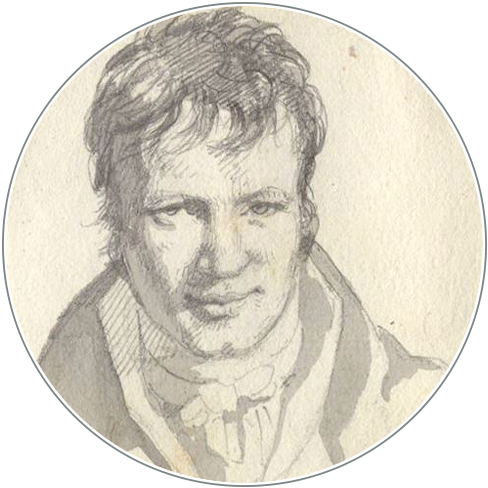Ambiguity as Principle
Alexander von Humboldt in the Revolution of 1848
DOI:
https://doi.org/10.18443/378Schlagworte:
Revolution 1848, Political Convictions, Liberalism, Constitutional MonarchyAbstract
Abstract
This article investigates Alexander von Humboldt’s position vis-à-vis the German revolution of 1848 and illuminates the different roles that scientists played in the public arena. Humboldt never committed himself to any political ideology or national movement. Instead, he maintained ambiguity as a social strategy and guiding principle to navigate through the revolutionary turmoil, interact with people of different political opinions, and stay true to his scholarly priorities. With great caution, Humboldt signaled his support for a constitutional monarchy and civil rights while remaining fearful of radical regime changes and violence. Retrospective attributes such as ‘democratic’ and ‘republican’ miss the ambiguity in his political stance and his loyalty to the Prussian king. Humboldt’s understanding of politics remained personalized and reserved; it was situational and bound to conversational settings.
Zusammenfassung
Dieser Artikel untersucht Alexander von Humboldts Position zur deutschen Revolution von 1848–1849 und beleuchtet die unterschiedlichen Rollen, die Naturwissenschaftler in der öffentlichen Arena spielten. Humboldt schloss sich keiner politischen Ideologie oder nationalen Bewegung an. Stattdessen pflegte er Ambivalenz als soziale Strategie und leitendes Prinzip, um durch die revolutionären Unruhen zu manövrieren, mit Menschen unterschiedlicher politischer Ausrichtung zu interagieren und seinen wissenschaftlichen Prioritäten gerecht zu bleiben. Mit großer Vorsicht signalisierte Humboldt seine Unterstützung für eine konstitutionelle Monarchie und allgemeine Bürgerrechte, während er radikale Regimewechsel und Gewalt fürchtete. Retrospektive Attribute wie „demokratisch“ oder „republikanisch“ übersehen die Ambivalenzen in seiner politischen Haltung und seine Loyalität zum preußischen Königshaus. Humboldts Verständnis von Politik blieb personalisiert und reserviert; es war situativ bedingt und in Konversationen verhaftet.
Resumen
Este artículo examina la posición de Alexander von Humboldt sobre la Revolución Alemana de 1848–1849 y explica los diferentes roles que desempeñaron los científicos naturales en la arena pública. Humboldt se unió a ninguna ideología política ni movimiento nacional. En cambio, él mantuvo la ambivalencia como estrategia social y principio rector para navegar el malestar revolucionario de 1848–49, interactúa con personas de diferentes orientaciones políticas y permanecer fiel a sus prioridades académicas. Con gran cautela, Humboldt manifestó su apoyo a una monarquía constitucional y a los derechos civiles mientras teme un cambio radical de régimen y la violencia. Los atributos retrospectivos, como ‘democrático’ y ‘republicano’, pasan por alto la ambivalencia en su postura política y su lealtad al rey de Prusia. Humboldt’s comprensión de la política siguió siendo personalizada y reservada; era situacional y estaba atrapado en conversaciones.

Downloads
Veröffentlicht
Zitationsvorschlag
Ausgabe
Rubrik
Lizenz
Copyright (c) 2025 Andreas W. Daum

Dieses Werk steht unter der Lizenz Creative Commons Namensnennung - Nicht-kommerziell 4.0 International.
Die Rechte der eingesandten Artikel bleiben bei den Autoren und werden unter einer Creative Commons-Lizenz (CC BY-NC 4.0) veröffentlicht. Alle bei HiN publizierenden Autorinnen und Autoren akzeptieren dieses Lizenzmodell.
Die Autorinnen und Autoren tragen die Verantwortung für das Einwerben der Bildrechte.
Die Rechte am Layout und Design der Zeitschrift sind nicht übertragbar und können nicht ohne vorherige Zustimmung von HiN in anderen Publikationen weiterverwendet werden.









